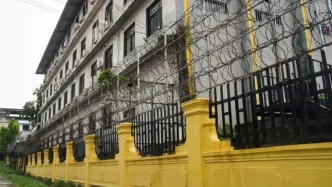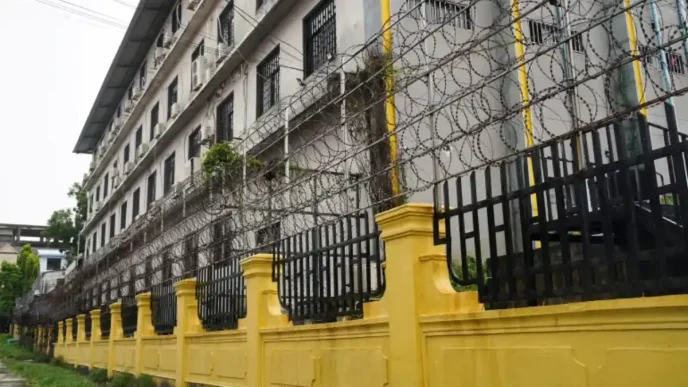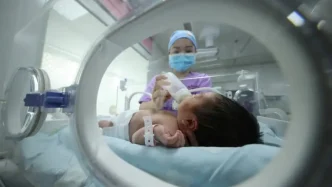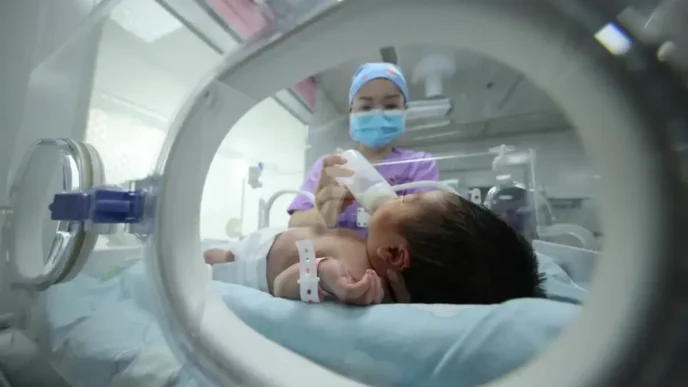Thailand’s Prime Minister Paetongtarn Shinawatra has taken a firm stance on two pressing issues facing the nation: the investigation into the collapse of the State Audit Office (SAO) building in Bangkok and a comprehensive review of the country’s visa-free tourism policy. During a Cabinet meeting on April 22, 2025, the Prime Minister issued a series of directives aimed at accelerating the investigation into the structural failure while addressing growing concerns over the misuse of visa exemptions. Her actions underscore a broader push to restore public confidence and bolster Thailand’s image as a safe and attractive destination for investors and tourists.
Urgent Investigation into SAO Building Collapse
The collapse of the SAO building has emerged as a significant concern for the Thai government, prompting immediate calls for accountability and transparency. Prime Minister Paetongtarn expressed frustration over what she described as insufficient cooperation from several agencies involved in the investigation. She has directed all relevant government bodies to fully support the Royal Thai Police by providing critical documents and data to determine the cause of the incident without delay.
Among the specific instructions, the SAO itself was tasked with submitting all pertinent documents, including a report from an internal investigation committee. This report, according to government sources, highlighted a breach of contract by a contractor as early as January 2025, yet no termination of the agreement was enacted. The Prime Minister’s directive signals a demand for clarity on why such lapses occurred and whether they contributed to the collapse.
Other agencies, including the Meteorological Department and the Department of Mineral Resources, were ordered to urgently provide reports on any seismic activity in the Bangkok area that might have played a role. Meanwhile, the Comptroller General’s Department was instructed to review the procurement process and building materials standards, focusing on legal compliance and the authority to terminate contracts with non-compliant companies. The Department of Public Works and Town & Country Planning, under the Ministry of Interior, which approved the building’s design and conducted inspections, was also called to cooperate fully.
In a parallel effort, the Ministry of Industry was directed to work with the Department of Special Investigation (DSI) to probe potential violations, including the use of substandard steel and cement, illegal foreign business activities, and bid rigging. These allegations, if confirmed, could point to systemic issues within Thailand’s construction sector, raising questions about oversight and regulation.
Compensation Challenges for Affected Parties
Beyond the investigation, Prime Minister Paetongtarn addressed the issue of compensation for those impacted by the collapse. She noted that the current guidelines set by the Comptroller General’s Department fail to reflect the true extent of the damage suffered. To rectify this, she instructed agencies such as the Department of Disaster Prevention and Mitigation, the Department of Public Works, and the Bangkok Metropolitan Administration to explore revisions to existing regulations. The goal is to ensure fair and flexible compensation that aligns with the actual losses incurred, while avoiding overlap with insurance payouts already disbursed for building repairs.
This focus on compensation highlights the human cost of the incident, as affected individuals and businesses seek redress. Revising these guidelines could set a precedent for how Thailand handles similar disasters in the future, potentially strengthening public trust in government responsiveness.
Visa-Free Policy Under Scrutiny
In a separate but equally significant move, the Prime Minister called for a review of Thailand’s visa-free scheme, which currently allows citizens of select countries to stay for 60 or 90 days without a visa. While the policy was designed to boost tourism—a key pillar of Thailand’s economy—concerns have arisen over its misuse, including overstays and illegal employment by foreign nationals.
Paetongtarn tasked the Ministry of Foreign Affairs, the Ministry of Interior, and the Ministry of Tourism and Sports with enforcing existing laws and assessing the impact of the program. The review will also evaluate whether the permitted duration of stay remains appropriate or if adjustments are needed to balance tourism promotion with national security and economic interests.
Government Spokesperson Jirayu Houngsub emphasized the broader context of these measures, stating, “The Prime Minister has urged all ministries to work together to quickly build confidence among foreign investors and tourists to encourage them to invest in and visit Thailand. The government is fully prepared in terms of safety measures and various promotional initiatives to stimulate the country’s economy in the second half of the year.”
Broader Implications for Thailand’s Governance
The dual focus on the SAO building collapse and the visa-free policy review reflects Prime Minister Paetongtarn Shinawatra’s administration’s broader priorities: ensuring accountability in public infrastructure projects and safeguarding Thailand’s reputation as a global tourism hub. The collapse investigation, in particular, raises critical questions about the state of regulatory oversight in the construction industry. If reports of substandard materials and contractual breaches are substantiated, the fallout could lead to sweeping reforms in how government contracts are awarded and monitored.
Thailand’s construction sector has long been a cornerstone of economic growth, with large-scale projects often tied to public and private investment. However, incidents like the SAO collapse underscore the risks of lax enforcement and inadequate safety standards. Analysts suggest that the government’s response to this crisis could serve as a litmus test for Paetongtarn’s leadership, particularly in her ability to enforce compliance across multiple agencies and deliver tangible results.
On the tourism front, the visa-free policy review comes at a pivotal moment. Thailand has historically relied on tourism to drive economic recovery, especially post-pandemic, with millions of visitors flocking to destinations like Bangkok, Phuket, and Chiang Mai each year. The visa-free scheme has been a key tool in attracting short-term visitors, but misuse of the program risks undermining its benefits. Overstays and illegal employment not only strain public resources but also fuel negative perceptions that could deter legitimate tourists and investors.
Balancing these concerns with the need to maintain an open and welcoming image will be a delicate task. The government’s emphasis on safety measures and promotional initiatives, as highlighted by Jirayu, suggests an awareness of the stakes involved. Yet, any changes to the visa policy must be carefully calibrated to avoid alienating key markets while addressing domestic concerns.
Public and International Reactions
Public sentiment within Thailand regarding the SAO collapse has been marked by frustration over perceived delays in the investigation. Many citizens, as reflected in social media discussions, are calling for swift justice and greater transparency in government projects. The Prime Minister’s directives may help assuage some of these concerns, though the effectiveness of inter-agency cooperation remains to be seen.
Internationally, the handling of both the collapse and the visa policy review will likely be closely watched by investors and tourism boards. Thailand’s ability to demonstrate robust safety protocols and a commitment to fair governance could reinforce its position as a stable destination for business and leisure. Conversely, prolonged delays or mishandling of these issues could dent confidence at a time when the country is keen to stimulate economic growth in the latter half of 2025.
Looking Ahead
As Thailand navigates these twin challenges, the coming weeks will be critical in shaping public and international perceptions of Prime Minister Paetongtarn Shinawatra’s administration. The investigation into the SAO building collapse must yield concrete findings and accountability, while the visa policy review needs to strike a balance between openness and control. For now, the government’s proactive stance offers a glimmer of hope, but the real test lies in translating directives into action. Questions remain about whether these efforts will rebuild trust and pave the way for a stronger, safer Thailand in the months ahead.














